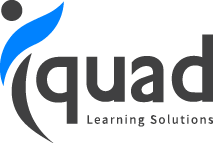It is important to continue learning throughout your career because it benefits your work and personal life. One of the benefits of learning throughout your career is that you can update your knowledge and skills depending on your personal preferences and career demands. Another benefit is that you will be better prepared when you encounter challenges and new opportunities. A third benefit of continuing to learn throughout your career is that your promotability is enhanced, since you develop new skills and knowledge that work to your advantage.
There are two ways through which you can develop new skills and knowledge.
Self-study involves learning by studying on your own at your own pace and with or without guidance from an instructor. Self-study without guidance from an instructor lets you choose the type of curriculum and way of learning that you prefer, such as textbooks and reference books versus hands-on experience. Guided self-study usually involves an established curriculum and guidance from an instructor, which could be a person or could be in the form of computerized feedback, The methods for guided self-study include books, workshops, and distance learning classes, such as online classes, videotapes, and computer programs.
Formal education, Learning through formal education requires you to take classes from an instructor so you can earn credit for the class. Usually, the credits you earn can count toward a degree, license, or certification. Today, many universities offer degrees, licenses, or certifications through distance learning programs that involve video-conferences, videotapes, and online classes.
What are the advantages and disadvantages of self-study?
Before deciding whether you prefer a self-study method to learn new skills, you should consider the Advantages and Disadvantages of self-study.
Advantages of self-study
- One of the advantages of self-study is its flexibility. You can determine your own schedule to facilitate meeting your time demands. You can also shorten your lesson’s time one day and compensate for it the next day.
- Another advantage of self-study is that it allows you to choose the way you learn. For example, if you dislike a particular way of learning, you can change it so that it meets your personal preferences. One more advantage of self-study is that you can choose where you conduct your learning. If you choose to, you can study at home, during your lunch break, or at a park.
Disadvantages of self-study
- One of the disadvantages of self-study is that the quality of your curriculum depends on the resources you use. In other words, if you choose a reference book or textbook that is not complete or does not include some information, your learning may be hampered. To avoid this, you should research the materials available for the subject you want to learn, compare them, and choose the materials that are the most complete and easy to follow.
- Another disadvantage of self-study is that sometimes you will gain skills and knowledge but will not receive official credit for the time and effort you invested. If you decide that you want to have official credit for the time you invest in your self-study, choose a distance learning method of self-study that offers Continuing Professional Education, or CPE, credits, like those offered with this program.
What are the advantages and disadvantages of formal education?
Before deciding whether you prefer a formal education method to learn new skills, you should consider Advantages and Disadvantages of formal education.
Advantages of formal education
- One of the advantages of formal education is that it is targeted specifically to meet your needs as a student. You are provided with materials and curriculum chosen by a professional educator, which enhances your learning potential.
- Another advantage is that you can earn credit toward a degree, certification, or license, which gives you official credit to prove your new skills.
Disadvantages of formal education
- One of the disadvantages of formal education is that it is not as flexible as self-study. When you attend a class, regardless of the type of class setting, you have to meet at a certain time and at a certain place. When you fail to attend, you miss part of your learning experience, and you risk being unprepared for exams, which can lead to bad grades.
- Another disadvantage is that you need to meet specific deadlines and obligations that, when not met, can cause you to fail the class or receive an unsatisfactory grade. This is true for any type of class, even those under the category of distance learning education that are more flexible in nature.
Although distance learning classes are more self-paced than classes in a formal setting, you still follow a specific schedule of deadlines and obligations in order to complete the class successfully. To avoid these disadvantages, you should consider whether you have the time to meet the demands of attending a class so that you can ensure that you successfully complete the class.



